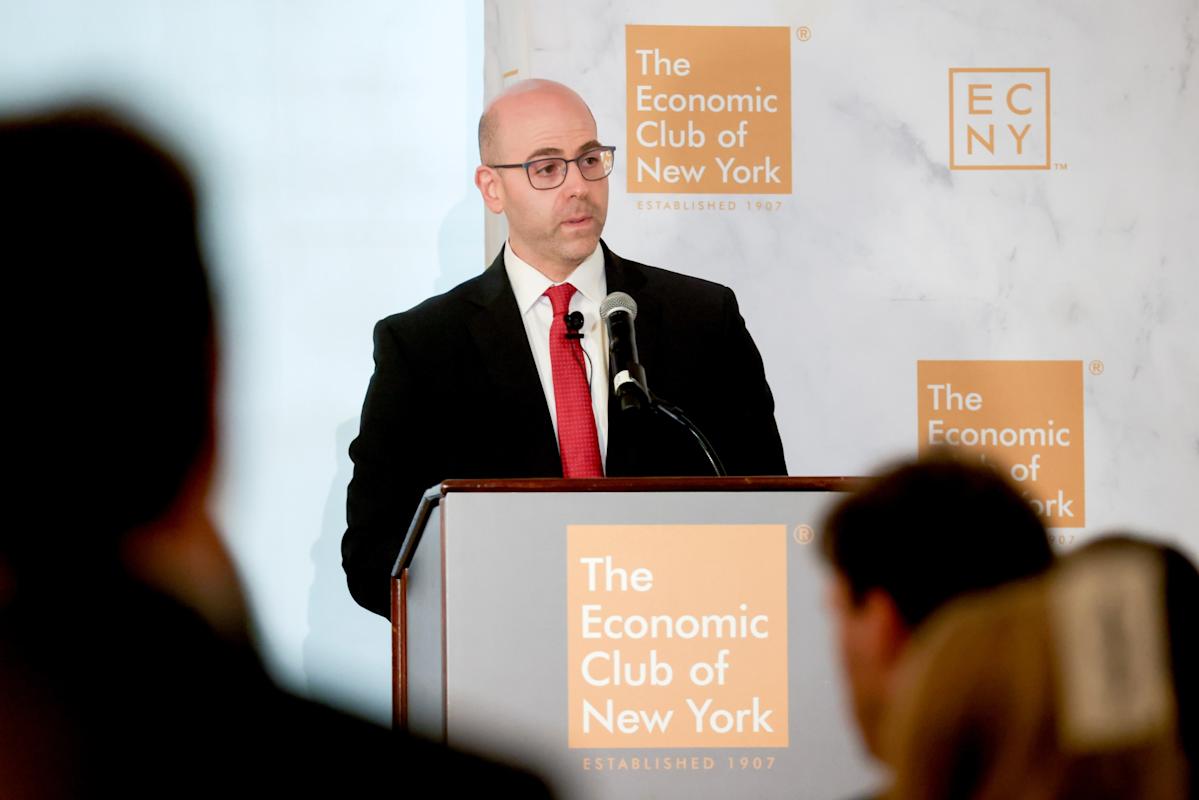(Bloomberg) — Federal Reserve Governor Stephen Miran said the US central bank risks damage to the economy by not moving rapidly to lower interest rates.
“I don’t think the economy is about to crater. I don’t think the labor market is about to fall off a cliff,” Miran said Thursday on Bloomberg Surveillance.
Most Read from Bloomberg
But given the risks, “I would rather act proactively and lower rates as a result ahead of time, rather than wait for some giant catastrophe to occur,” he said.
WATCH: Federal Reserve Governor Stephen Miran makes the case for rapid interest-rate cuts.Source: Bloomberg
Miran, a new Fed board member who was appointed by President Donald Trump, is an outlier among the central bank’s policymakers in calling for immediate, aggressive rate cuts. He argued the Fed’s current policy rate, which is in a range of 4% to 4.25%, is highly restrictive because it’s well above his estimate of the so-called “neutral” level — where policy neither boosts nor restrains the economy.
“The neutral rate is drifting down, and as a result of that, it’s incumbent upon policy to adjust in response,” Miran said. “If policy stays excessively restrictive for too long, then you do get to a situation in which you have a meaningful increase in the unemployment rate.”
Miran spoke just before data released Thursday morning showed second-quarter growth in gross domestic product accelerated to the fastest pace in nearly two years, underscoring the US economy’s resilience. Separate data published simultaneously showed weekly initial filings for unemployment insurance fell to the lowest level since July.
Fed officials voted to lower interest rates at their meeting last week by a quarter percentage point, the first cut of 2025. Miran dissented against the decision, instead favoring a half-point cut.
Several policymakers, including Fed Chair Jerome Powell, have approached rate cuts cautiously, amid concerns Trump’s tariff policies might persistently boost inflation. Powell has said that possibility, along with signs of a weakening labor market, poses a challenge for the Fed’s decision-making in the months ahead.
Kansas City Fed President Jeff Schmid, in remarks prepared for an event Thursday in Dallas, said he supported the recent rate cut but hinted he may not back another reduction any time soon.
“I viewed the 25-basis point cut in the policy rate last week as a reasonable risk-management strategy,” Schmid said. “That said, my view is that inflation remains too high while the labor market, though cooling, still remains largely in balance.”
Speaking earlier Thursday on the Fox Business network, Miran said officials can quickly implement several larger cuts to reach the neutral level, rather than moving slowly over the course of the year.
“My view is that we can get there in a very short series of 50-basis-point cuts, readjust monetary policy, and then move more gingerly once we’re there,” he said.
–With assistance from María Paula Mijares Torres, Jonathan Ferro, Lisa Abramowicz, Annmarie Hordern and Catarina Saraiva.
(Updates with economic data and Schmid comments beginning in sixth paragraph.)
Most Read from Bloomberg Businessweek
©2025 Bloomberg L.P.
